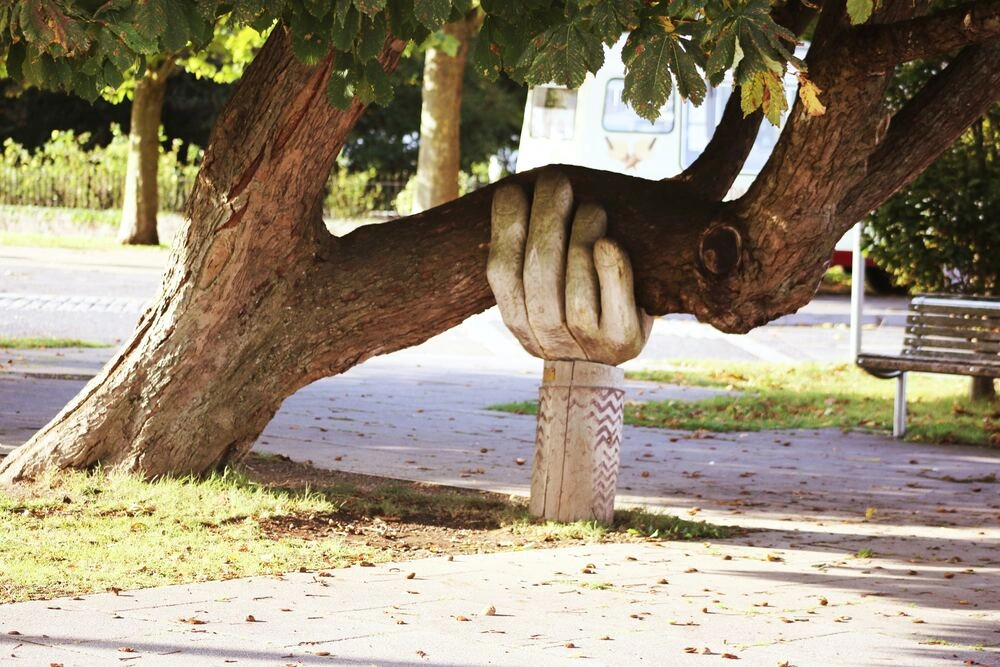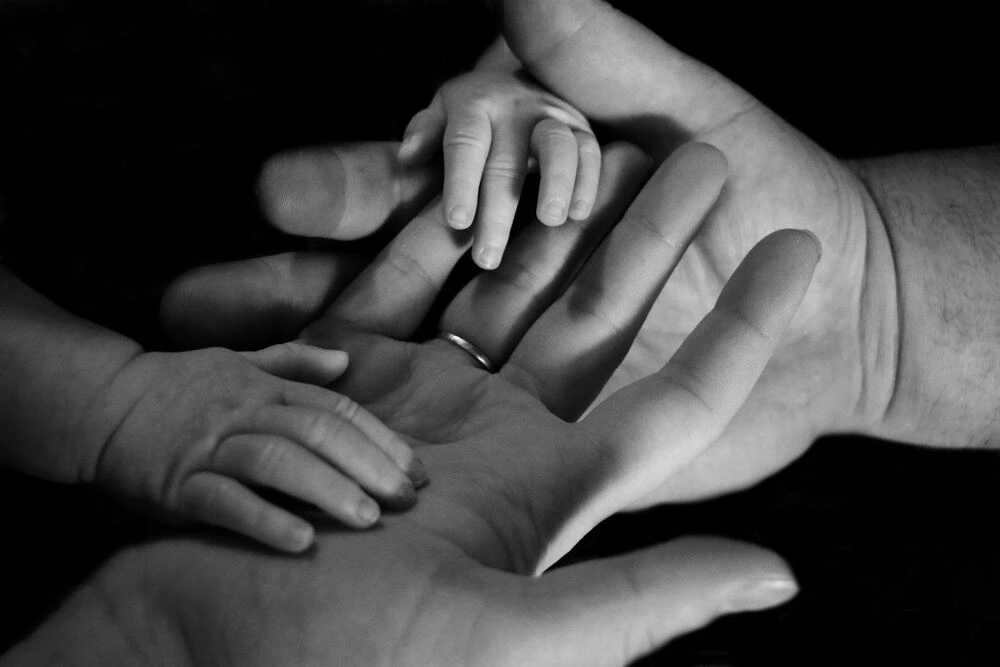The effects of addiction aren’t limited to the addicted person. Addiction is referred to as a “family disease” and successful treatment must incorporate the family of the person struggling with addiction. Research has shown that not only are all members of the family affected but also unless we treat the entire family, the chances of a loved one staying sober are slim.
The concept of addiction as a family disease revolves around the idea that addiction doesn’t only affect the individual struggling with substance abuse, but also deeply impacts their family and loved ones. In this article, we’ll delve into the nature of addiction as a family disease, explore the roles that family dynamics play in addiction and recovery, and discuss effective therapeutic strategies that can be used to treat this condition.
Crossroads Antigua Approach
Crossroads Centre Antigua has always known the importance of family involvement in treatment. In our commitment to providing the best outcome for our clients, our family program is designed specifically to allow for a fully integrated approach. Family members will work directly with their loved one and and with the support of the clinical team at Crossroads practise the skills that will not only improve communication and strengthen family boundaries but will also enable the clients and their family members to process conflict in a healthy way. Whether you have a loved one in treatment or not, any family member who has suffered the effects of someone’s addiction are welcome to participate!

The Family Disease Concept
Substance addiction[1] is often characterised as a family disease due to its extensive repercussions on the familial unit. Not only does it affect the individual grappling with substance abuse, but it also significantly impacts other family members who endure the outcomes of the addict’s behaviour. Intergenerational trauma is a critical aspect of this, where unresolved traumas from previous generations continue to affect subsequent ones, potentially fostering a cycle of substance abuse within the family.
This cycle can manifest when individuals, burdened by familial issues, resort to self-medication as a means to suppress or cope with their emotional turmoil.
The self-medication hypothesis posits that individuals might engage in substance abuse to mitigate untreated emotional distress or traumas. The family, being a crucial element in an individual’s life, can often be the source of such distress. The Adverse Childhood Experiences (ACE) study substantiates this link, establishing a significant correlation between adverse childhood experiences and substance abuse later in life. ACE scores can elucidate the extent of childhood trauma, helping in understanding its potential ties to substance abuse.
Recognizing the profound connection between trauma and substance abuse [2] has propelled the ascent of trauma-informed care in the addiction treatment realm. This approach emphasises addressing the root causes of substance abuse by fostering a safe, supportive environment for individuals to explore and heal from their past traumas.
Through trauma-informed care, the underlying issues contributing to substance abuse can be tackled, paving the way for more effective intervention and prevention strategies. This holistic approach acknowledges the crucial role of family dynamics and intergenerational trauma in substance abuse, propelling a more nuanced understanding and treatment of addiction as a family disease.
Ref.
[1] https://medlineplus.gov/ency/article/001522.htm
[2] https://www.cdc.gov/violenceprevention/aces/about.html
The Scope and Impact of the Family Disease Concept
Understanding the scope of addiction as a family disease involves acknowledging the various psychological, emotional, and financial impacts it has on family members. It disrupts family dynamics, impacts mental health, and puts a financial burden on the family. The Substance Abuse and Mental Health Services Administration (SAMHSA) [2] also highlights that living with someone who has a substance use disorder can lead to increased stress and anxiety for family members.
Ref.
[2] https://www.samhsa.gov/mental-health/mental-health-substance-use-co-occurring-disorders
The Role of Family in Addiction
How Family Dynamics Contribute to Addiction
Family dynamics are crucial in understanding the onset and continuation of substance abuse, often tracing back to the family of origin. The roles, rules, and emotional atmosphere within a family significantly contribute to an individual’s inclination towards substance abuse.
Intergenerational Trauma:
The concept of intergenerational trauma, where unresolved emotional distress from past generations continues to affect subsequent ones, further compounds this propensity. Such traumas can be perpetuated through familial behaviours and dynamics, establishing a cycle that may lead to substance abuse.
Historical Trauma:
Beyond the immediate family, historical trauma, which encompasses collective adversities experienced by a community or group, can also seep through generations, impacting individual and familial susceptibility to substance abuse.
Relational Trauma:
The facet of relational trauma, involving emotional neglect, abuse, or dysfunctional interpersonal relationships within the family, creates an environment conducive to substance abuse.
Research Evidence:
A study cited in the Journal of Substance Abuse Treatment affirms the association between these intricate family dynamics and substance abuse, shedding light on the multifaceted nature of this relationship.
Genetic Predisposition:
Additionally, genetic predispositions play a crucial role, where inherited traits may make some individuals more susceptible to substance use disorders.
Environmental Stressors:
The interplay between genetic factors and environmental stressors within the family, such as high levels of stress, abuse, or neglect, further heightens the risk of developing addiction. Recognizing and addressing these intertwined factors provides a comprehensive lens through which the cycle of addiction within families can be understood and, with hope, interrupted.

Substance Abuse and the Impact on the Family Structure
Substance use disorder can drastically alter family roles and relationships. The affected individual might become less reliable, forcing others to take on additional responsibilities. Relationships within the family can also become strained as trust erodes.
Trust, the bedrock of any relationship, may begin to crumble under the weight of substance abuse. The once tight-knit family may start to experience strains as this trust erodes, casting a pall of uncertainty and discomfort over the familial bond. It’s like the family’s safety net is unravelling, causing a distinct shift in how everyone interacts and depends on each other.
The Emotional Toll on the Family
The emotional toll on the family of a person struggling with addiction is significant. Family members often experience a range of emotions including anger, frustration, guilt, and sadness. There’s also the constant worry about the wellbeing of the addicted individual.
While the emotional toll and shifting family dynamics are at the forefront, other, more insidious consequences lurk in the background. Families may find themselves grappling with financial strain due to costs related to treatment or a loss of income. The societal stigma attached to substance abuse can lead to isolation, while the family’s health, lifestyle, and daily routines may also be disrupted.
In essence, substance use disorder is like an unwelcome guest that can upend family life in profound ways, leaving its mark not only on roles and relationships but across a broader spectrum of life aspects.
How Substance Abuse Affects Every Family Member
Impact on Children
Children living in families where a parent is struggling with addiction can suffer from neglect and instability. They may also develop emotional and behavioural issues, and are at a higher risk of developing substance use disorders themselves in the future.
Picture a child’s world being turned upside down when a parent struggles with addiction. Suddenly, their life can be clouded with neglect and instability, like trying to find steady footing on a swaying bridge. Their emotional world may also take a hit, leading to behavioural issues that echo the turmoil they’re living in. And even scarier? They have a higher risk of getting ensnared in the same substance use disorders later in life. Imagine them trying to navigate through school and friendships while shouldering this heavy burden.
However, there’s a silver lining. With the right support and intervention, this cycle of substance abuse can be broken. Various support groups, counselling services, and community programs are available to provide the necessary help to families and children facing these challenges. For instance, programs like Al-Anon and Alateen offer a supportive environment for families and individuals affected by a loved one’s substance abuse. Similarly, school-based counselling and educational programs can equip children with the skills and support needed to overcome these adversities.
Impact on Spouses
The spouse of an individual with substance addiction often bears the brunt of the emotional and financial strain. This can lead to marital conflict, stress, and even domestic violence. The spouse may also face social isolation and a decrease in quality of life.
Being married to someone fighting with a substance addiction can feel like being in a constant tug-of-war. The spouse often bears the lion’s share of emotional and financial strain. This overwhelming pressure can fuel marital conflicts, escalate stress levels, and in worst-case scenarios, even spark incidents of domestic violence. They may also find themselves trapped in a bubble of social isolation, with their quality of life taking a significant nosedive. Imagine having to juggle all these challenges while trying to keep their partner’s addiction under wraps.
However, it’s crucial to remember that support is available. Engaging with self-help groups such as Al-Anon and Co-Dependents Anonymous (CoDA) can provide a lifeline. Al-Anon offers a community for people affected by a loved one’s drinking, while CoDA is geared towards individuals working through codependency issues often stemming from dysfunctional relationships. These groups provide a platform for sharing experiences, gaining insights, and acquiring coping strategies to manage the impacts of a loved one’s substance abuse.
The Domino Effect on Extended Family Members
Not to be forgotten are the extended family members, such as doting grandparents, caring aunts, uncles, and even cousins. They too, can be caught in the ripple effect of a loved one’s addiction. They might suddenly find themselves stepping into the shoes of caregivers, or grappling with the financial burdens associated with addiction treatment. Moreover, they need to cope with the emotional upheaval that inevitably comes along with these new roles.

The Impact of Addiction on the Family: Emotional, Physical, and Financial Consequences
The emotional stress faced by families dealing with addiction can lead to mental health issues such as anxiety, depression, and post-traumatic stress disorder (PTSD). It’s a constant cycle of worry, fear, disappointment, and despair. [5] Evidence suggests that childhood trauma can compromise neural structure and function, potentially leading to psychiatric illnesses including PTSD and substance abuse later in life (NCBI).
Moreover, studies have identified a costly clinical association between PTSD and Substance Use Disorders (SUDs), which includes increased chronic physical health problems, poorer social functioning, higher rates of suicide attempts, more legal problems, increased risk of violence, worse treatment adherence, and less improvement during treatment (NCBI). Individuals diagnosed with PTSD are found to be three times more likely to misuse substances, indicating a significant overlap between PTSD and substance abuse issues
The physical health of family members can also be affected. Chronic stress can lead to physical ailments like heart disease, high blood pressure, and weakened immune system. Furthermore, they might neglect their own health while focusing on the needs of the addicted family member.
The financial strain due to addiction can be immense. Money that could have been used for basic needs or saved for the future is often used for buying substances, paying legal fees, or funding rehabilitation programs. This can lead to economic instability and exacerbate the family’s stress levels.
Ref.
[5] https://pubmed.ncbi.nlm.nih.gov/30892169/
What are the Family Roles in Addiction?
The Family Roles in Addiction is a theory model developed to understand the dynamics and roles adopted by family members when dealing with addiction within the family. This model elucidates the behavioural patterns and coping mechanisms employed by family members in response to a loved one’s addiction. While the origin of this model can be traced back to various theorists in the field of family therapy and addiction counselling, its concepts remain crucial in understanding and addressing the familial impact of addiction.
The Enabler
The enabler is a family member who inadvertently encourages the addiction by protecting the person with the addiction from the consequences of their actions. This could be by covering up for them, providing them with money, or making excuses for their behaviour.
The Hero
The hero is the family member who attempts to maintain a semblance of normalcy and control within the family. They often take on additional responsibilities and strive for perfection in an effort to compensate for the instability caused by the addiction.
The Scapegoat
The scapegoat is the family member who often gets blamed for the problems caused by the addiction. They usually act out in response to the chaotic family environment and their behaviour often diverts attention away from the person who has the addiction.
Amidst these dynamics, a repetitive cycle emerges where family members become entrenched in their roles, perpetuating the problems surrounding addiction and affecting the overall family environment. This cyclical nature of family roles can lead to a reinforcing pattern of behaviour that makes it difficult for the family to break free from the shackles of addiction.
Therapeutic Interventions:
Therapeutic interventions such as Psychodrama, utilised at Crossroads, serve as a vital tool in exploring and addressing these family roles. Psychodrama facilitates a deeper understanding of these roles, allowing family members to express, explore, and work through the issues emanating from addiction. Besides Psychodrama, other therapeutic approaches like Family Systems Therapy, Cognitive Behavioral Therapy, or Narrative Therapy also hold promise in untangling the web of family roles and aiding in the recovery process.
The importance of family therapy cannot be overstated in breaking this repetitive cycle. Family therapy provides a conducive environment for family members to understand the dysfunctional dynamics, change the enabling and blaming behaviours, and support one another in the journey towards recovery. By engaging in family therapy, families can work together to heal the wounds inflicted by addiction, fostering healthy relationships and a conducive environment for the recovery of the individual battling addiction.

Effects of Addiction on the Family
Breakdown of Communication
Addiction can lead to a breakdown of communication within the family. Family members may avoid discussing the issue, leading to secrecy, denial, and resentment. This often escalates tensions and isolates the addicted individual, further exacerbating the problem.
Erosion of Trust
Trust is often one of the first casualties of addiction. As the person struggling with addiction continues to lie, manipulate, and deceive their loved ones, the bond of trust that once held the family together starts to crumble. This can cause long-lasting damage to family relationships.
Why Family Support Is Crucial for The Recovery Process?
The Importance of a Supportive Environment
A supportive family environment is a crucial component of the recovery process. Family members who are understanding and empathetic can offer much-needed emotional support. Additionally, they can aid in motivating the person to seek treatment and can provide a stable environment conducive to recovery.
Family involvement in the recovery process can significantly improve outcomes. Active participation in therapy sessions, educational programs, and support groups can equip family members with the knowledge and skills to effectively support their loved one. The National Institute on Alcohol Abuse and Alcoholism (NIAAA) indicates that family involvement can enhance treatment effectiveness and reduce relapse rates.
How the Family Can Heal?
Healing within the family starts with open and honest communication. Recognizing the impact of the addiction, expressing feelings in a safe and respectful manner, and setting boundaries are all steps towards recovery. It’s also crucial to remember that healing is a process that takes time and patience.

The Role of Family Therapy in Healing
Family therapy plays a pivotal role in the healing process. It helps families understand the nature of addiction, facilitates the rebuilding of broken relationships, and provides strategies for effective communication and conflict resolution.
Family therapy plays a pivotal role in the healing process. It helps families understand the nature of addiction, facilitates the rebuilding of broken relationships, and provides strategies for effective communication and conflict resolution. Various therapeutic approaches can be employed to meet the unique needs of each family. Some of these include:
Psychodrama:
- As mentioned earlier, Psychodrama is a creative therapeutic approach that uses guided drama and role-playing to work through problems. It’s highly effective in exploring family roles and dynamics, and fosters a deeper understanding and healing of family issues related to addiction.
Cognitive Behavioral Therapy (CBT):
- Common techniques used in family therapy include cognitive-behavioural therapy (CBT), systemic family therapy, and multidimensional family therapy. These approaches aim to address both individual and family-wide issues that contribute to substance abuse. [4]
Family Systems Therapy:
- This therapy explores relationships and communication within the family system. It helps families understand how their behaviour affects each other and the family as a whole, working towards improving family dynamics and resolving conflicts.
Narrative Therapy:
- Narrative Therapy helps families re-author their stories in a way that aligns with their values and preferred outcomes. It’s a way to separate individuals from the problems they face, enabling them to explore and address issues within a safe and supportive framework.
Solution-Focused Brief Therapy (SFBT):
- SFBT is goal-oriented and focuses on solutions rather than problems. It helps families envision a desired future and works towards achieving these goals through constructive discussions and action plans.
Motivational Interviewing:
- This client-centred approach enhances motivation to change by exploring and resolving ambivalence. It’s beneficial in encouraging individuals with addiction issues to engage in treatment and make positive changes.
Multidimensional Family Therapy (MDFT):
- MDFT addresses a range of influences on adolescent behaviour, including individual, family, and peer factors. It’s especially effective for teenagers with addiction issues and their families, aiming to improve overall family functioning.
Ref.
[4] https://pubmed.ncbi.nlm.nih.gov/3064845/
Family Therapy for Addiction
The Goals and Benefits of Family Therapy
Family therapy aims to rebuild broken relationships, improve communication, and provide family members with the skills to support their loved one’s recovery. Benefits include enhanced understanding of addiction, improved family dynamics, and better coping mechanisms.
Steps of Family Therapy for Destigmatizing Addiction
Understanding and Addressing Stigma
Stigma can be a significant barrier to seeking help for addiction. Family therapy can aid in understanding and addressing this stigma by educating family members about the nature of addiction and promoting empathy towards the person struggling with substance abuse.
Openness and understanding within the family unit can play a pivotal role in destigmatizing addiction. Accepting that addiction is a disease and not a moral failing can help in fostering a non-judgmental environment that encourages recovery.
Types of Addiction Support Programs for Families
Support programs like Al-Anon and Nar-Anon provide a platform for families dealing with addiction to share their experiences, learn from others, and receive emotional support. They offer various resources including meetings, literature, and online forums.
These programs can provide families with the tools to cope with the effects of addiction. They can help in reducing feelings of isolation and despair, improving coping skills, and enhancing understanding of addiction.
Get Help for Your Loved One Today
It’s never too late to seek help for a loved one struggling with addiction. By taking action today, you can start the journey towards healing and recovery. It may be a challenging journey, but the rewards of a healthier, happier life are well worth the effort.
Early intervention and ongoing support are key to successful recovery. By recognizing the signs of addiction early and providing consistent support throughout the recovery process, families can significantly increase the chances of their loved one achieving long-term sobriety.
How Crossroads Can Help You and Your Family with Addiction
Crossroads Centre Antigua, recognizes the impact of addiction on both individuals and their families. Our Family Addiction Counselling Program is designed to involve families in the recovery process, providing them with the tools to break destructive communication patterns and foster healing. Our internationally recognized staff offer a supportive and safe environment for recovery from alcohol and other drug dependencies. If you or a loved one is struggling with addiction, we’re here to help. Start your journey to recovery today by contacting us at 1 (888) 452-0091.

FAQ (Frequently Asked Questions)
What does it mean when we say “addiction is a family disease”?
Addiction is considered a family disease because it affects not only the person struggling with substance abuse but also their family and loved ones. This impact extends to emotional, physical, and financial aspects of family life.
How does addiction impact the family structure and dynamics?
Addiction can cause significant changes in family roles and relationships, lead to a breakdown of communication, erode trust, and result in emotional and financial strain.
What roles do family members often play when a loved one is struggling with addiction?
Family members often take on roles such as the enabler, the hero, or the scapegoat in an attempt to manage or cope with the effects of addiction.
How can a family contribute to or hinder the recovery process of a loved one with addiction?
A supportive family environment can be crucial for the recovery process. On the other hand, enabling behaviours or a lack of understanding about addiction can hinder recovery.
What is the role of family therapy in treating addiction?
Family therapy helps families understand the nature of addiction, rebuild relationships, improve communication, and develop effective strategies for supporting their loved one’s recovery.
How can family therapy help in destigmatizing addiction?
Family therapy can help destigmatize addiction by promoting understanding, empathy, and openness within the family unit.


Gail Shaw says:
Seriously good and beautiful too, glad to know about it.
Thank you,
Gail Shaw